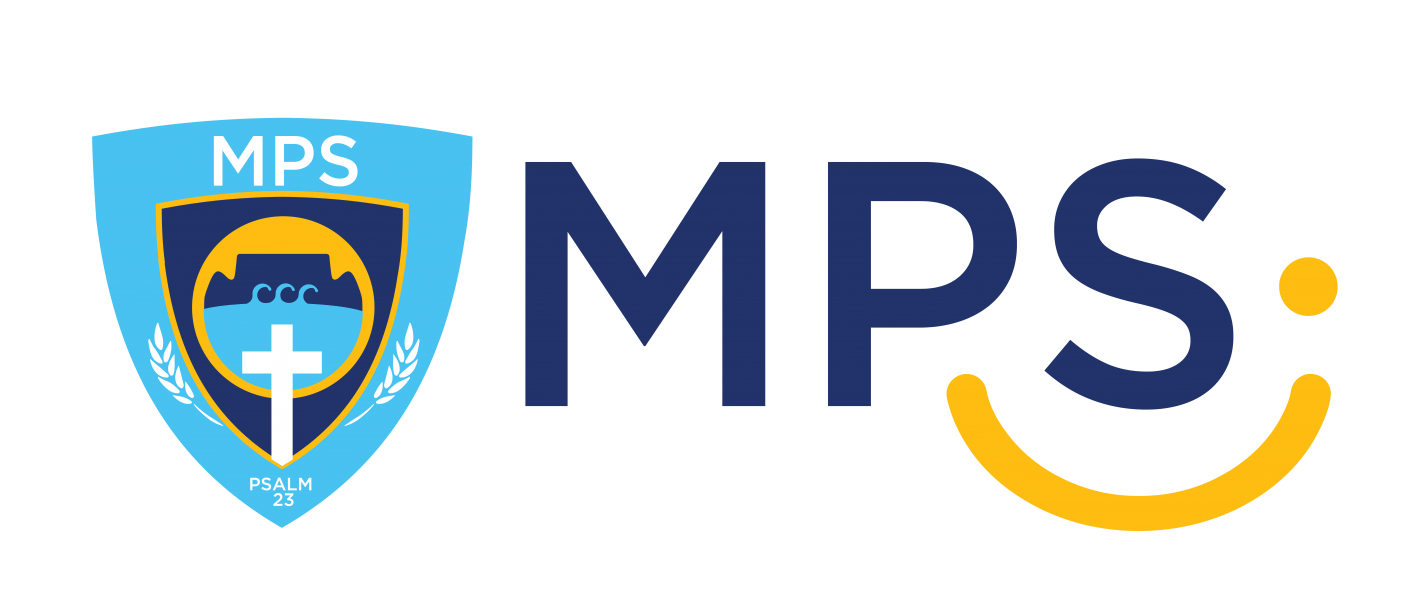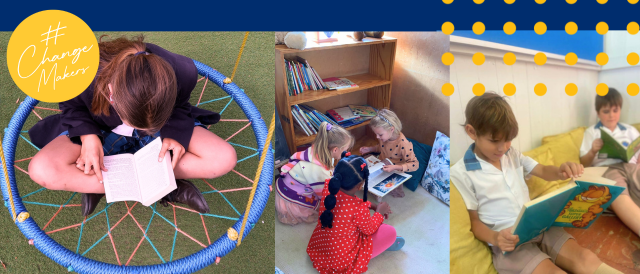The importance of reading – In an age where screens seem to dominate every aspect of our lives, instilling a love of reading in children and teenagers is more important than ever. Reading not only enhances language skills but also fosters creativity, empathy, and critical thinking. In this article, we will explore strategies and tips to help parents and families nurture this essential, in fact critical, love of reading in young minds.
At Melkbosstrand Private School, we believe that cultivating a passion for reading is a basic but key component of a well-rounded education and it is a key element of our strategy of Raising and Releasing #Changemakers. We have put this passion into practice by partnering with Keller Education to implement the Active Readers programme at MPS whereby we encourage learners to Be Active (spend your afternoons playing, surfing, chilling, being with friends, walking on the beach, skateboarding, riding your bicycle, enjoying sport, etc) and to Be a Reader (spend at least 20 minutes a day reading a book).
Cultivating a love of reading in children and teenagers is a gift that will benefit them throughout their lives.
“It has been found that young children whose parents read to them daily would have been exposed to at least 290 000 more words by the time they reach nursery school!” says Mr Allan Norton, MPS’ head of Intermediate, Senior and FET phases.
“At MPS we believe that fostering this passion for reading is essential to their academic and personal development. “
While reading up on this interesting topic I came across some interesting statistics in an article which I’d like to share,” added Mr Norton. (click here for to read the entire article: https://literacyproj.org/2019/02/14/30-key-child-literacy-stats-parents-need-to-be-aware-of/)
Here is an extract from the article which makes for particularly interesting reading:
“If you’re a parent and want a deeper understanding of the importance of reading, read below for a collection of statistics pertaining to the key development areas in child literacy to help prepare you to make a difference in the future lives of your children.
- By age 2, a child’s brain is as active as an adult’s and by age 3 the brain is more than twice as active as an adult’s – and stays that way for the first 10 years of life.
- Cognitive processes develop rapidly in the first few years of life. In fact, by age 3, roughly 85% of the brain is developed. However, traditional education takes places in grades K-12, which begin at age five.
- According to the Department of Education, the more students read or are read to for fun on their own time and at home, the higher their reading scores, generally.
- Reading and being read aloud to has an impact that extends beyond just hearing stories.
- 65% of America’s fourth graders do not read at a proficient level.
- In a study of nearly 100,000 U.S. school children, access to printed materials was the key variable affecting reading acquisition.
- Children’s academic successes at ages 9 and 10 can be attributed to the amount of talk they hear from birth through age 3. Young children who are exposed to certain early language and literacy experiences also prove to be good readers later on in life.
- Books contain many words that children are unlikely to encounter frequently in spoken language. Books for kids actually contain 50% more words that children are unlikely to encounter frequently than regular conversation, TV or radio.
- The National Center for Education Statistics (NCES) found that children who were read to frequently are also more likely to: count to 20, or higher than those who were not (60% vs. 44%), write their own names (54% vs. 40%), read or pretend to read (77% vs. 57%)
- Higher reading exposure was 95% positively correlated with a growing region supporting semantic language processing in the brain.
- The most important aspect of parent talk is its amount. Mothers who frequently speak to their infants have their children learn almost 300 more words by age 2 than did children whose mothers rarely spoke to them. Simultaneously, children learn grammatical syntax and the social nuances around communication in their community.
- Children exposed to fewer colors, less touch, little interaction with adults, fewer sights and sounds, and less language, actually have smaller brains.
- The number of books in the home correlates significantly with higher reading scores for children.
- Students who choose what they read and have an informal environment in which to read tend to be more motivated, read more and show greater language and literacy development.
- Children who are read to at least three times a week by a family member are almost twice as likely to score in the top 25% in reading compared to children who are read to less than 3 times a week.”
Source: Copyright © 2022, The Literacy Project.
At MPS we believe firmly in starting them off reading early and this is put into practice in both the Pre-Primary (NSA) & Foundation Phases.
“As we practise learning through play, we teach the learners to read through play. Understanding what you read is of utmost importance and to have a love for reading and information,” says Mrs Antoinette Gauche, head of MPS’ ECD and Foundation phases.
“We have a hands-on approach and our learners must hold a book in their hands when they read or are being read to.”
“We also recently partnered with Koeberg Public Library in their ‘1000 Stories Before School’ initiative,” adds Mrs Gauche proudly.
“While we actively encourage at least 20 minutes of reading in the higher grades every afternoon.”
“Alway remember – every time someone reads to a child, the child learns a little more about what it means to be a reader. Reading to your child is a very important step towards learning to read properly. A child does not have to wait until they goes to school before they start to be a reader.“
We encourage you to read informative books to your child which will stimulate curiosity and wonder about our natural and physical world. Reading about life stories of people who have been involved in history, art, music, theatre, medicine and science can be hugely motivating to learners wondering what life is about. In this process, they broaden their knowledge and understanding and learn about where and how to find information.”
“It is important for your child to experience books every day. Reading to your child for a short time every day from infancy helps prepare a child to learn how to read. They are never too young!”
11 Benefits of Reading for Children:
- Reading increases creativity and imagination
- Reading expands a child’s vocabulary and builds attention span.
- Reading teaches live lessons
- Reading together builds strong family bonds
- Reading opens minds to new and diverse people, places, and situations.
- Reading is fun and helps children relax after a stressful day.
- Reading promotes and enhances critical thinking skills.
- Reading teaches children about the complex world we live in.
- Reading increases cognitive and language skills
- Reading helps build character.
- Reading limits screen time.
Our MPS #ChangeMakers are fortunate to be exposed to this drive to cultivate a love of reading as without it, literacy rates drop as is evident in the research conducted in South Africa.
(For more interesting reading on the topic here are some links to various articles we’ve found during our research:
- https://www.bbc.com/news/world-africa-65618058
- https://businesstech.co.za/news/government/688439/south-africas-massive-reading-problem
- https://theconversation.com/learning-to-read-is-a-journey-a-study-identifies-where-south-african-kids-go-off-track-206242
- https://mg.co.za/education/2023-04-04-illiteracy-costs-south-africas-economy-r119-billion-report-says/)
Tips for parents and families:
Be a Reading Role Model
Children and even teenagers often imitate the behaviours and interests of the adults around them. One of the most effective ways to instil a love of reading is to be a reading role model yourself. Let your children see you read books, magazines, or even e-books. Discuss what you’re reading and share your enthusiasm. When they see that reading is a valued activity in your life, they are more likely to adopt it as a habit.
Create a Reading-Friendly Environment
Designate a cosy reading nook in your home. Fill it with books, comfortable seating, and good lighting. Make it a special place for family time where children and teenagers can escape into the world of books. Keep a variety of age-appropriate reading materials readily accessible so they can explore their interests.
Read Aloud
Reading aloud to young children is a powerful way to introduce them to the joys of storytelling and language. Even teenagers can benefit from listening to a well-told story. Choose engaging and interesting books, and make it a habit to read aloud regularly. Encourage children to take turns reading as they get older.
Give Them Choices
Allow children and teenagers to choose their own reading materials although as parents you need to ensure that it is age appropriate. This empowers them to explore their interests and develop a sense of ownership over their reading habits. Visit libraries and bookstores together and let them pick out books that appeal to them. Don’t be overly concerned with the difficulty level; the most important thing is that they’re engaged.
Set Reading Goals and Rewards
Set achievable reading goals for your children or students. These could be as simple as reading for 20 minutes a day or finishing a certain number of books in a month. Reward their achievements with praise, small treats, or even a trip to a bookstore. These incentives can motivate them to read regularly. In our Primary School faculty we set daily reading goals for our learners and this trend even carries through to our aftercare – the aftercare is housed in a shared space with the school library and learners are encouraged to pick something to read and share their reading experience with the rest of the aftercare learners once they are done reading for a certain time.
Join a Book Club or Library
Many communities offer book clubs and library programs specifically for children and teenagers. Joining one of these groups can provide a sense of belonging, enhances general knowledge and makes reading a social activity. Discussing books with peers can be incredibly motivating and enjoyable.
Embrace Technology
During the Covid-pandemic many parents resorted to technology to keep children occupied and a joke even arose about if you switch the subtitles on – “bam!” your child is reading…
On a more serious note – in today’s digital age, technology can be a valuable tool to encourage reading. E-books, audiobooks, and educational apps can be engaging alternatives to traditional books. Encourage the use of these resources while still balancing screen time with the benefits of holding a physical book.
Encourage Discussions
Engage children and teenagers in discussions about what they’re reading. Ask open-ended questions about the characters, plot, and themes. Encourage them to share their opinions and make connections to their own lives. These conversations deepen their understanding and appreciation of books.
Celebrate Reading Achievements
Celebrate milestones in your child’s reading journey. Whether it’s the first few words or sentences, finishing a challenging book or reaching a certain number of books read in a year, acknowledge their efforts. Consider creating a reading journal or blog where they can document their thoughts on each book they finish.
By being role models, creating nurturing environments, and using various strategies to make reading enjoyable, we can inspire young minds to embark on a lifelong journey of learning and exploration through books and we encourage you to do the same! Contact the MPS team today to find out more about joining the ranks of #Changemakers and Active Readers at Melkbosstrand Private School.


Recent Comments